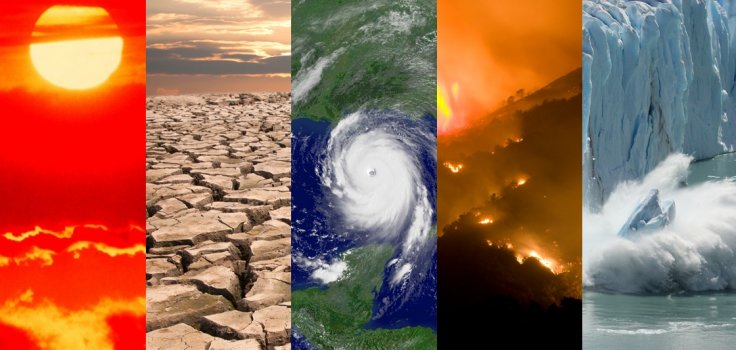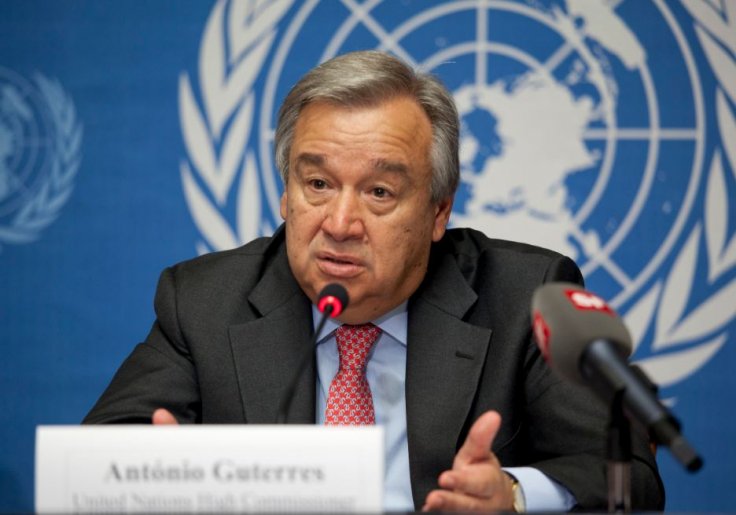The world has been facing unprecedented challenge in the past nine months due to the Coronavirus pandemic along with other disastrous environmental issues. But humans can save the world from future disasters and they must stop "waging war on nature," said UN Secretary-General Antonio Guterres.
During the United Nations' first-ever summit on the biodiversity crisis that took place on Wednesday, September 30, the UN chief voiced his concerns against the wrongdoings of humans and called on world leaders to "change the course and transform our relationship with the natural world."
He said during the UN summit that one consequence of the imbalance with nature—because of climate change, deforestation, and food production—was the emergence of deadly diseases, such as HIV, Ebola and now the SARS-CoV-2 caused COVID-19, "against which we have little or no defense."

We Are Not Against but With Nature
As a large number of heads of state or the governments and top officials had participated in the summit via video-link, the UN chief clearly stated, "Humanity is waging war on nature. And we need to rebuild our relationship with it."
He continues his speech while saying that the wildlife populations are now dropping drastically due to overconsumption, population growth, and intensive agriculture. "And the rate of species extinction is accelerating with some one million species currently threatened or endangered," Guterres added.
"Degradation of nature is not purely an environmental issue – it spans economics, health, social justice, and human rights," and negligence toward the world's resources can also exacerbate geopolitical tensions and conflicts, said UN Secretary-General.
'We Have Largely Failed'

Wednesday's event gave an opportunity to the UN Chief to discuss future plans with more than 100 heads of state and government. He reminded them that 10 years ago, "we secured commitments that should have protected our planet," but "we have largely failed." According to Guterres, nature is "resilient" and the only way it can recover from the damage is when "we ease our relentless assault."
Addressing the summit, the world leaders also expressed their concerns via video messages. Chinese President Xi Jinping urged the world to cooperate to fix the environment. He said that the loss of biodiversity and the degradation of the ecosystem poses a massive risk on the survival of human civilization. He also asked for a joint effort to turn earth into a "beautiful homeland". Xi's comments came a week after he announced that China would achieve carbon neutrality before 2060.
During the virtual summit, French President Emmanuel Macron said 2021 should be "the year of action," while Britain's Prince Charles said, "We know what we need to do... Let's get on with it." However, the US which is currently busy with its upcoming election has failed to attend the UN summit.

Environment Hazards
Plastic pollution is not a new issue but there are many things which we are not aware of. The Regional Activity Centre for Sustainable Consumption and Production (SCP/RAC) warned in a recently published report that exposure to even small amounts of harmful plastic chemical additives could result in cancers, damage the immune and reproductive systems, affect the intellectual functions, and cause developmental issues.
Dr. Sara Brosche of the International Pollutants Elimination Network (IPEN) said the report should not be overlooked as it identifies "hazardous chemical additives in common, widely available products and illustrates how they pose a threat to health and the environment whether in products, in waste, in recycling, landfill, or incineration."
Attenborough Seeks $500 Bln Per Year
Even though the world spends around $80-$90 billion on conservation every year, as per experts and hundreds of billions of dollars would be required to save the ecosystem from the collapse. Sir David Attenborough, an English broadcaster, writer, and naturalist-led a campaign on Wednesday, September 30 to invest $500 billion per year to save the nature from destruction, as the future of the planet was in "grave jeopardy". He said that humans still have the opportunity to reverse catastrophic biodiversity loss, "but time is running out."
The world is suffering and the signs are all around the globe. Siberia recorded the warmest temperature this year, while Greenland lost a massive chunk of ice caps and the wildfires are frequent. Considering these factors, including the sea level rise, which is threatening for many small island nations, world leaders during a recent UN meeting have warned of environmental armageddon, noting that—If COVID-19 doesn't kill us, climate change will.
During the UN meet, as many leaders from small island nations revealed how they are struggling with the environmental hazards, the Alliance of Small Island States and the Least Developed Countries Group said that in another 75 years, many members may no longer hold the seat in the UN if the world doesn't change the course.









